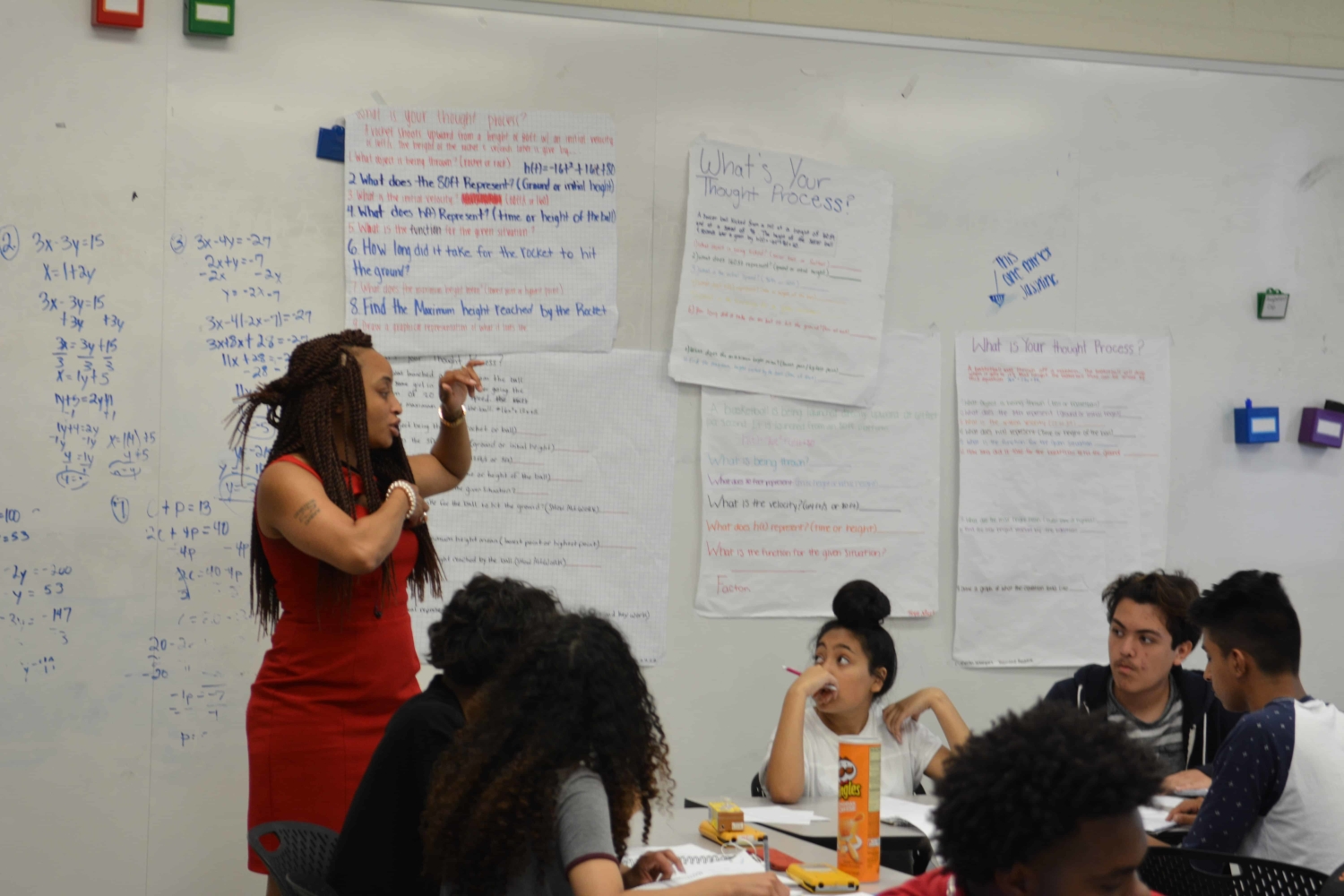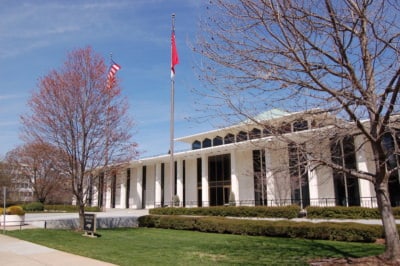What makes a great teacher? It’s a question that parents, superintendents, principals, and even teachers themselves grapple with.
As we have traveled the state, we’ve noticed that there are a lot of ways people think about teachers. And, of course, everyone has a favorite.
Mine was Mr. Hunter. He taught my sixth grade social studies class. What I remember most about him was his sense of humor. At the time, I was into putting a lot of gel in my hair. Perhaps too much. One day, Mr. Hunter came up to me and said, “Son, what are you going to do if a girl wants to run a hand through your hair?”
“What do you mean?” I asked.
“Her hand’s going to get stuck,” he replied.
It was funny, but it was also true. I laid off the gel shortly thereafter.
Now, I would argue that Mr. Hunter was a great teacher, but the truth is that just because a teacher is your favorite, doesn’t mean that he or she is a good or even great teacher. So, what makes a great teacher?
“By definition, teaching is effective when it enables student learning,” finds the The Bill & Melinda Gates Foundation in a policy and practice brief on the measures of effective teaching. That seems like a good place to start.
Are they teachers who inspire achievement on tests even in schools with a high degree of poverty? Teachers like Amanda Northrup. She was a teacher at Riverbend Elementary School in Haywood County in 2015. It was one of only 17 schools in the state with 50% or more free and reduced lunch students that received an A on its state report card for 2014.
She talked about the importance of high expectations for her students.
“Getting to those high expectations means we do whatever we can to make learning work for every individual kid,” she said.
Are they teachers who find innovative ways to reach their students? Like those at the North Phillips School of Innovation in Edgecombe County who use affirmations, passion projects, identity work, and other strategies to help their students design their own learning with the goal of self-actualization.
Are they people like Hadley Moore, who left her job as an English teacher to become a multi-classroom leader and eventually went to work in administration?
“I would not have had the courage, curiosity, and relationship-building skills to take on an assistant principal position — let alone in an elementary school! — were it not for the experiences I had building a team and transforming an academic culture as a high school English MCL,” she wrote in a perspective for EdNC.org.
Or are they teachers like our teachers of the year, who for their stint in the limelight are treated like rock stars?
People like Freebird McKinney, the 2018 Burroughs Wellcome Fund North Carolina Teacher of the Year. This guy IS a rock star. He now plays a leadership role in his own district, and between being in schools, State Board of Education meetings, and the General Assembly, you can find him with a big smile on his face, chatting with strangers and friends wherever he goes.
McKinney described himself as “a free-lunch kid,” in public school. His family’s second father left him while he was in his junior year at UNC-Chapel Hill, where he was majoring in anthropology and philosophy. He supported himself through college by being a line cook at the Carolina Inn, and worked as a chef for years. He ended up becoming a teacher by getting a master’s degree in history and later a master’s degree in education.
His life paved the way for his calling as what he calls a “village teacher.”
“One of the most important things we do as teachers is to extend a call of adventure to our students. Steve Maraboli said it best: ‘If you are not a hero of your own story, then you are missing the whole point of humanity,’” said McKinney. “Our job is to help our students on the path as our teachers did for us. Educators — you are our village teachers — you guide us to answer the call.”
And there are many others that we could include. Teacher leaders, like those from BEST NC FIT, the Hope Street Group, or the Kenan Fellows. Teachers recommended by superintendents, principals, and other teachers. Teachers who throw themselves into advocacy. But all of this returns us to the question: What makes a great teacher?
This year, the Belk Foundation announced a five-year strategic focus on equitable access to effective teachers. The Belk Foundation is pursuing this initiative because of how important effective teachers are.
They cite the following stats on their website:
- Across North Carolina, there are over 100,000 K-12 public school teachers. 20% of NC teachers exceed expected growth standards for their students, and it’s lower in Charlotte-Mecklenburg Schools with 16% of teachers exceeding expected growth.
- In North Carolina, there are 21,000 beginning teachers (0-3 years of experience). Beginning teachers are much more likely to be hired late and placed in higher poverty schools. In CMS, 19% of white students in low poverty schools had a beginning teacher compared to 37% of black students and 33% of Hispanic students in high poverty schools.
What we know is that effective teachers tend to:
• Have high cognitive ability and knowledge of their content
• Be conscientious, have a growth-mindset, set goals and use data to drive results for students
• Be culturally-aware and teach in culturally responsive ways
• Be good communicators and motivate all students to learn
• Believe in children and have high expectations for all students
• Diagnose student learning, differentiate instruction, and skillfully select strategies and resources to reach all learners
• Establish safe, supportive, engaging and purposeful learning environments
• Make students feel cared for, inspired and challenged
• Among many, many additional daily acts of service, dedication, and care— From the Belk Foundation, Five-Year Impact Plan: June 1, 2019 – May 31, 2024
Having a great teacher is important. We want to explore where great teachers learn the skills they need to be effective, beloved, respected. We want to know the role of educator preparation programs in their development.
What do you think makes a great teacher? And how do you think teachers get to be great? If you have thoughts, let me know.
We will be rolling out a series of profiles of teachers from around the state. Stay tuned to hear their stories and how they became the teachers they are today.
Editor’s note: The Bill & Melinda Gates Foundation and the Belk Foundation support the work of EducationNC. Freebird McKinney serves on EducationNC’s Board of Directors.



